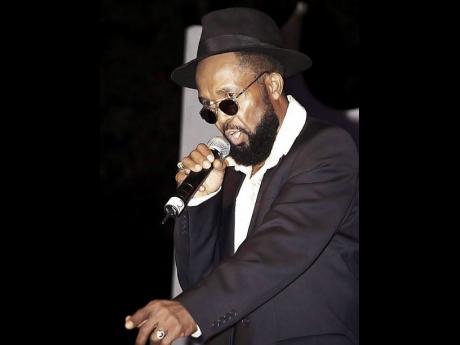The Music Diaries | The drama of 'Oh Carolina'
Perhaps the most defining moment in Jamaica's popular music history came with the release of the recording Oh Carolina in 1959. It was a landmark single in the development of Jamaica's modern music - the first that moved away from the then current trend of imitating the American Rhythm and Blues, and into the area of Rastafarianism, incorporating African-influenced Nyabinghi drumming and chanting, which gave exposure to Rastafarians at a time when they were marginalised in the Jamaican society. That aside, the recording has been cited by many as having a profound influence on the development of reggae.
Surprisingly, though, Oh Carolina was never intended to promulgate or popularise Rastafarians or the Rastafarian culture. In fact, John Folkes, the second eldest of the Folks Brothers, who wrote the song, conceived it as a love song about his girlfriend with a similar name.
"Carolina honey darling, all my love for you,
Carolina honey, you know I love only you.
Oh Carolina from Jamaica,
Come back and make things right," they chanted in the song.
But after all is said and done, the main man behind that dramatic musical shift was Prince Buster, a man who has travelled the route of sound system operator, protector of the underdog, vocalist, and record producer. Eric (Junior), the youngest of the three brothers, told me recently from his residence in Barbican: "While we were rehearsing and awaiting an audition outside Duke Reid's Studio, Buster heard us and was impressed and persuaded us to come to his shop. While there, he told us that he wanted us to do the song for him with the Count Ossie drummers. We did rehearsals in Wareika Hills, and shortly after, recorded the song at The Jamaica Broadcasting Corporation (JBC) in 1959, with Buster doing handclaps and imitation horn riffs, Owen Gray playing piano, us doing the vocals, and Count Ossie and his drummers doing musical backing. One cut and the song was done."
Buster's move was quite in accordance with his character of doing things differently. He made handclaps a dominant feature of his recordings; he used the mouth organ instead of a saxophone to play ska riffs; he adopted a slower ska tempo; and he punctuated many of his ska pieces with monologues.
The 'Royalties' debate
Just weeks after Oh Carolina was recorded, it began to create waves across Kingston, mainly through its hypnotic repetition of African drumming, chanting, and its unusual style that was not, ska, rocksteady, or reggae.
When the brothers first approached Buster for royalties, they were given sixty pounds, but when they returned for more, they left empty-handed, which provoked some animosity. Sensing an imminent confrontation with Buster, their mother urged them to drop the case. Eric said that their decision to do that was influenced by a 15,000 pounds football pool winnings by their father, which bought a home in the upscale community of Havendale. "We didn't bother to fight him (Buster) because we all right, so we decided to cool it off," Eric said.
In the meantime, John Folkes said in the book Reggae Routes, "They were playing it (Oh Carolina) up to 15 times a night at Forresters Hall. It got so big the radio could no longer ignore it." The result was a chart-topping Jamaican single in early 1961. It, along with the B-side I Met a Man, were the only recordings done by the trio in that period.
Several artistes have done covers of Oh Carolina, some claiming authorship, which created some amount of jitters. But when Shaggy's 1993 version sold millions, topped the charts in several countries, and generated enormous royalty payments for the true author, things reached boiling point. The producer of the song - Prince Buster - always maintained that he wrote it. The Folkes Brothers disagreed. It led to an investigation by a London court to determine the true author and hence to disperse royalties. The court ruled that John Folkes was the true writer of the song.
Eric Folkes said that things took another turn when Greensleeves Records and Publishing Company, having taken up the case on behalf of the brothers and paying their passage to London, along with Count Ossie's, filed for a percentage of the royalties. Greensleeves' claim for a 60-40 per cent share in their favour did not meet the approval of the brothers and forced the two parties back into a Canadian court.
According to Eric, he and the eldest brother - Miko - decided against any further involvement with the case while John was adamant about continuing. He was unable to state the outcome to the case, but added, "whatever my bother get, it doesn't matter to us and we have nothing against each other".
Some 50 years passed before the brothers (Miko and Eric) returned to the recording studios to do the 14-track album Don't Leave Me Darling. Eric remained in music while Miko and John pursued doctorates in theology and literature, respectively.



